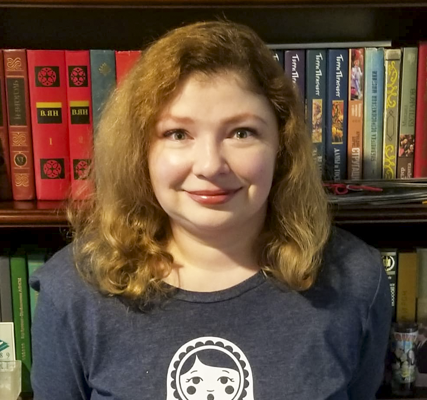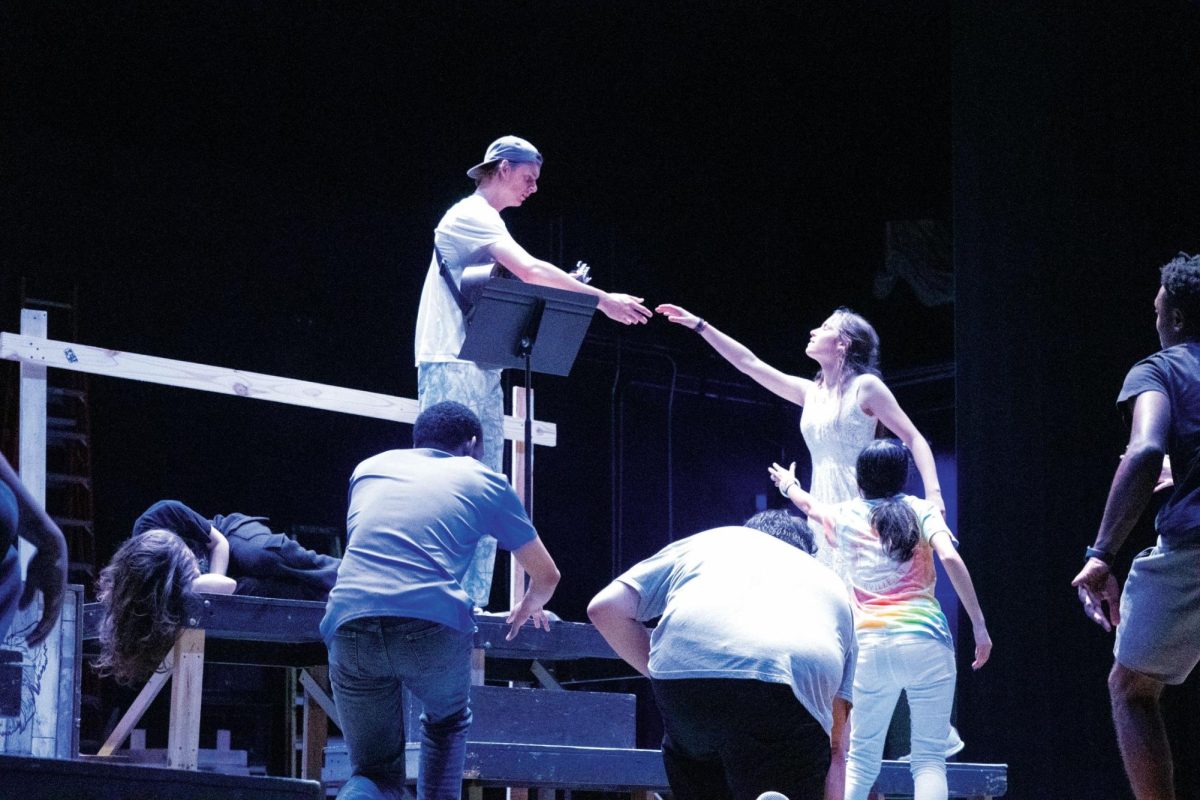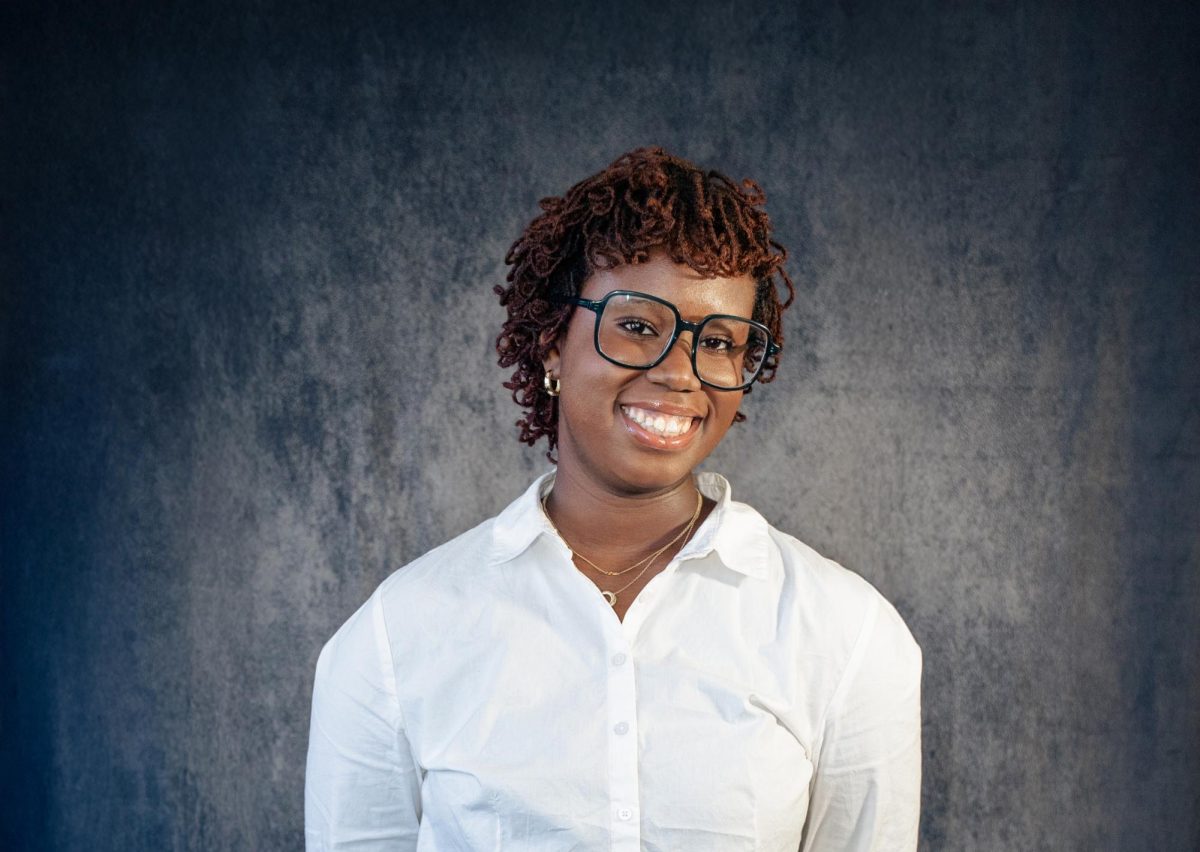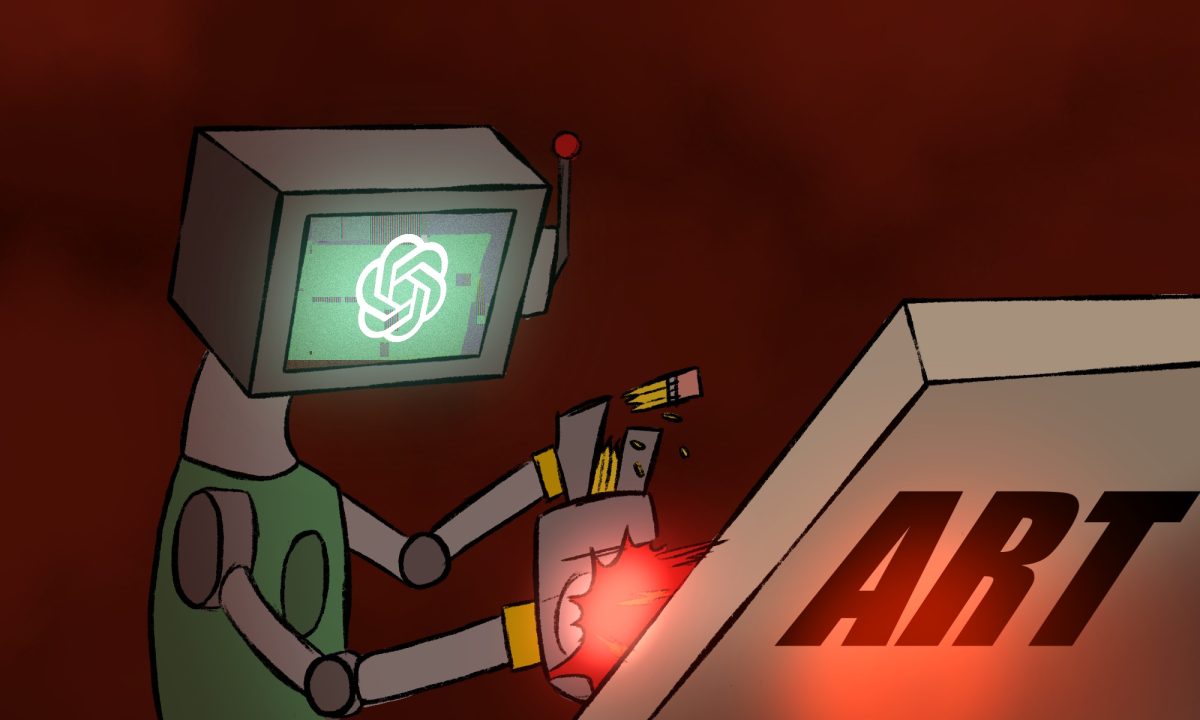By Juan Hernandez
When Nina Lambert left her Russian homeland for the United States, she thought one day she would go back. So many things—her boyfriend, her friends, her job—were left behind that she couldn’t imagine her life outside of Russia. Now she doesn’t see herself living anywhere but the U.S.
Lambert is a professor of English at Eastfield and has taught for the college since 2013.
Her life has been punctuated by historic events. The Russia of her childhood was still part of the USSR. When she was 11 years old, the Soviet Union collapsed and became the Russia of today.
“Almost overnight we woke up with MTV, we woke up with freedom of speech, we woke up with things we couldn’t really have [before],” she said. “It was exciting.”
For Lambert, growing up in the Soviet Union meant having to praise leaders who were not praiseworthy, pledging allegiance to the homeland and obeying the government’s stringent rules. Though it was not as strict as when her parents were young, there were still consequences for those who went against the political order.
Lambert remembers attending parades at 6 a.m. with her parents in honor of the Soviet Union. They went because they had to, not because they wanted to.
“People were supposed to march through the streets with flags and this huge display of happiness and celebration,” she said. “You know it’s only true when it’s genuine. Nobody celebrates because they are required to, and nobody is happy because they are required to be.”
At first, Lambert’s parents were cautious about the change. Some saw the collapse of the Soviet Union as a time to celebrate, but her parents warned her if things were to change again, everyone celebrating could be jailed. That was the reality of where they lived.
“[My parents] were afraid to be hopeful,” Lambert said. “They were mostly just telling me not to discuss it with my friends, not to discuss politics at all, as if an 11-year-old talks about politics.”
Years later, she found it surprising people still wanted the old way of life back. One day she was walking with her best friend when an elderly woman asked them to join a ceremony for a group of young people. They didn’t know when they accepted the invitation the ceremony was to celebrate the young people’s initiation into the Young Pioneers, a communist youth organization from the Soviet era.
“They were hoping that the Soviet Union would come back,” Lambert said. “Not so much because it was good, but because they knew how to live in that system. They knew the rules to live by.”
Another historic event from Lambert’s childhood was the 1986 explosion at the Chernobyl nuclear power plant.
Chernobyl was only about 90 miles away from where her grandparents lived in Ukraine. Lambert used to visit them when her parents had work to do. When the explosion happened, her parents came and took her back home, but her grandparents refused to leave.
The wind ended up carrying a lot of the radiation westward and away from their home. Lambert said her grandparents lived in the same house for more than 10 years after the explosion, and to her knowledge they didn’t suffer any major health effects due to radiation exposure.
In her grandparent’s home, Lambert enjoyed her grandma’s food and the beautiful garden with all kinds of fruits and vegetables. When her grandfather came back from work, she would listen to him talk about the news and the events happening around the world.
In Lambert’s family, staying close with each other is something that has always been important. It was because of this she found herself in the United States.
When Lambert’s sister moved to the U.S. and had her first baby, Lambert and her parents came to visit. Yet again she found herself living through a historical moment — the Sept. 11 terrorist attacks.
After holding various jobs and finishing the rest of her school in the U.S., Lambert became a professor and found the value of sharing her knowledge with others through literature. Even though she admits there is not much money involved in what she is doing, she still enjoys it.
James Hartley, a former Et Cetera staff member and student of Lambert who graduated with a journalism degree from Eastfield, credits her for motivating him to become a reporter. Among other things, he also viewed Lambert as a professor who really cared about her students.
“She seemed to care a lot about students and what she was teaching,” Hartley said. “She really had a lot of fun with the subjects that she taught when I was in her classes.”
When Hartley was still in high school taking dual credit classes, he wrote a book that he gaveto Lambert to read. She gave him feedback and told him it was impressive, but what made him feel good was that when he was taking college classes later on, she took examples from his book to demonstrate to her classes.
“She would do just little things throughout to make things more interesting and communal instead of sitting at class listening to a lecture,” Hartley said.
Even at home her husband Thomas Lambert sees how much effort she puts into the subject she teaches.
“I’m always impressed with the level of preparation and the dedication to her students to presenting material that will be interesting and enjoyable to the class,” Lambert said. “I knowshe has a following [at Eastfield] and I think that her excellent teaching is the reason for that.”
Lambert sees her role in life as spreading joy, happiness and knowledge. Literature for her was the thing that made her heart jump with excitement. And though she admits there is little financial gain in her profession, the emotional value more than makes up for it.
“[Teaching English] is something that makes me happy,” she said. “I feel incredibly lucky to be able to do it. Especially because English is not my first language.”









Brian Roffino • Jan 28, 2021 at 5:23 pm
Nina Lambert is a total rockstar – and she’s even inspiring to her colleagues (like me!). I’m glad she’s getting some recognition, and I’m glad to hear more of her fascinating biography. 🙂